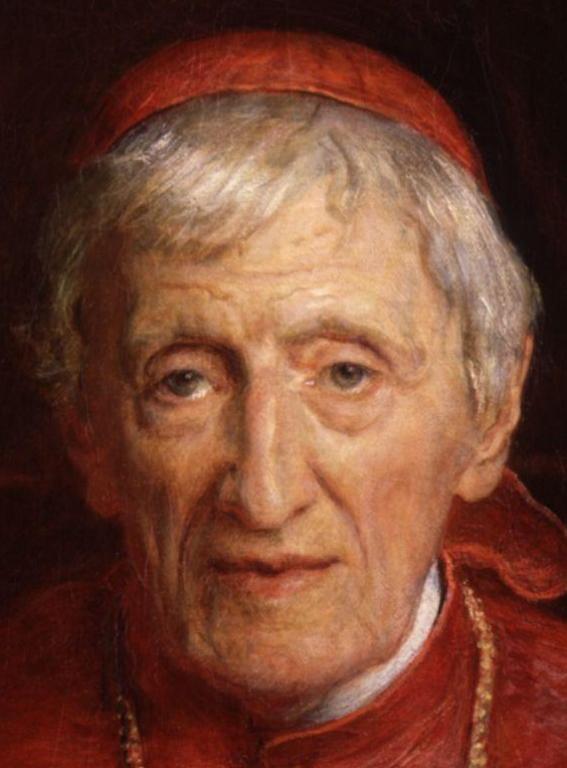
Fresh new approaches to old Catholic truths are suspected to be intended heterodoxy.
*****
I think of, for example, my hero, Cardinal Newman, who was accused for decades of being a theological liberal (supposed proponent of the heretical evolution of dogma), when he was not at all. He strongly protested any such notion when he received the Cardinal’s hat in 1879. Cardinal Newman was simply a fresh and brilliant innovator in presenting timeless Catholic truths.
Even Pope St. Pius X defended him as perfectly orthodox. In fact, one time, anti-Catholic polemicist David T. King was claiming in a large forum that Newman was heterodox (according to Catholic standards), and was mocking anyone who claimed otherwise. I produced a letter from Pope St. Pius X that asserted the opposite, and he shut right up, and has never been willing to get within a million miles of debating me on Catholic theology ever since (almost 16 years now).
Many thought Cardinal Newman was a theological liberal, or dissident. After his conversion to Catholicism in 1845, he was often (oddly enough) more highly regarded in Anglican circles than in Catholic ones: particularly after his self-justifications in his spiritual autobiography, Apologia pro vita Sua (1865). I can relate in some respects. The Catholic convert is often seen as “neither fish nor fowl”: denigrated as a “traitor” or “apostate” by some from the Protestantism that he left, and suspected by others in his new Catholic home as still “half-Protestant”.
Prominent American convert Orestes Brownson (received into the Church in 1844) excoriated Newman’s teachings on development of doctrine as heterodox and dangerous. He later changed his mind (at least to a significant extent) and figured out that they weren’t. Newman’s “theory of development” was simply a fresh, bold revision of what had been taught almost as explicitly by St. Vincent of Lerins in the 5th century, and St. Augustine and St. Thomas Aquinas.
But no one had presented it as comprehensively and strikingly as Newman had. Thus, it was mistakenly thought to be a radically new (i.e., heretically innovative) thing. This charge is a chestnut of anti-Catholic polemics. They just don’t get it.
And this is how I perceive Pope Francis in our present day. He’s being innovative in pastoral ways (very different from how Newman was original and innovative), but it’s still a fresh approach.
Many people think that they see theological liberalism and a corrosion of moral tradition in Pope Francis’ teachings. I have not seen it. I just went through an entire book (by Phil Lawler) purporting to demonstrate that the Holy Father is heterodox and intends to promulgate same; that he is “engaged in a deliberate effort to change what the Church teaches.” I never found the proof in his book. I showed, I think, in five critiques of it (one / two / three / four / five), that he utterly failed in proving his point. It was like peeling an onion, to get to the core. There is (was) none. But he firmly believes it.
*
*
Oh well. I guess Phil and mutual friend and enthusiast for / advocate of the book, Karl Keating, have a much lower standard of “proof” and “demonstration” than I do.
***
Photo Credit: Close-up from a portrait of Blessed John Henry Cardinal Newman (1801-1890) by Sir John Everett Millais (1829-1896) [public domain / Wikimedia Commons]
***













